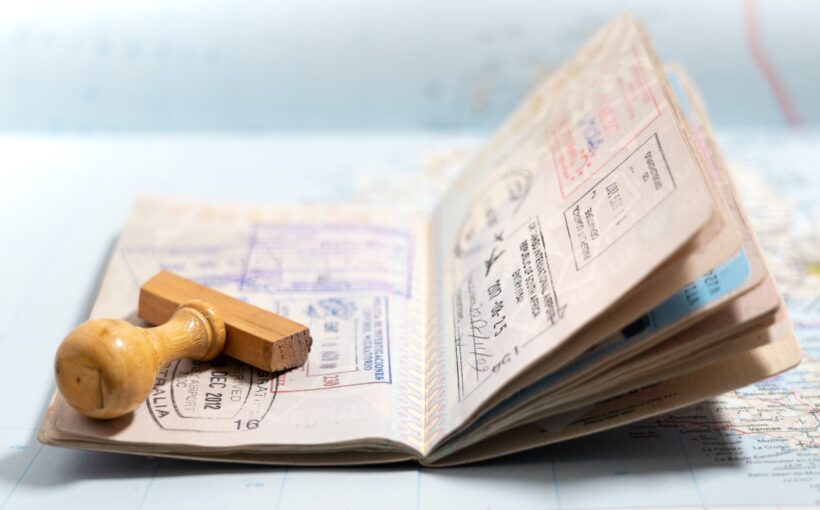
When someone applies for asylum in the UK today, they may be waiting months or even years for their application to be decided, thanks to the record-high backlog that the government is failing to tackle.
The vast majority of asylum claims are successful. Up to 77% of applications have been granted refugee status since 2021, a substantial increase from the pre-pandemic years, when only one-third of applications received a positive decision. But approval of an asylum application is not an instant guarantee of a safe and secure life in the UK. On the contrary, new refugees are immediately thrust into another period of limbo that puts them at risk of poverty and homelessness.
While awaiting their decision, new refugees in the UK are housed in accommodation provided by the government – currently in hotels, dispersal accommodation, or sites such as the Bibby Stockholm barge – and receive a small amount of money (£6.77 per day for adults) for food, clothing and toiletries. When awarded refugee status, they must leave their accommodation and are cut off from government support.
They can now work, rent a house and access state benefits, including social housing. But this transition happens very quickly, and new refugees have only 28 days, including weekends and bank holidays, to access the essential services they need to rebuild their lives.
Organisations supporting refugees have called for the period to be extended to 56 days, to give people adequate time to set up their lives in the UK and give local government time to offer needed support. This has been discussed in both houses of parliament, but no progress has been made.
It would also bring this period in line with existing legislation on homelessness reduction which requires local authorities to work to try to find accommodation for anyone at risk of becoming homeless in the next 56 days.
Yet the Home Office appears to have moved in the opposite direction. Refugee organisations have reported that some people are receiving just seven days’ notice to leave their accommodation.
The Home Office has said that the policy has not changed, telling the Guardian that “an asylum seeker remains eligible for asylum support for a prescribed period from the day they are notified of the decision on their claim”.
Previously, new refugees received a letter informing them that their existing support and accommodation will end in 28 days. This letter is crucial to start homelessness proceedings at local authority level, and to give refugees a timeline to plan for changing circumstances.
Any shortening of the guaranteed 28-day notice period would put impossible pressure on local authorities to help refugees find accommodation and would further push people into poverty and homelessness.
The ‘destitution gap’
In my ongoing research, I’ve conducted dozens of interviews with new refugees, as well as representatives from local authorities and charities in the north of England. Their comments reveal how this 28-day period often results in homelessness, labour exploitation and financial destitution.
The British Red Cross has labelled the time between the end of government asylum support and access to universal credit and other resources the “destitution gap”. During this time, new refugees frequently turn to food banks and charities, or take on exploitative jobs. As one person explained:
Twenty-eight days is not enough to sort anything, and your money is cut … you ended up being homeless, not having a place to go and not having something to eat.
New refugees are not allowed to work while awaiting a decision, and therefore are unable to save money, effectively meaning many cannot support themselves straight away.
To access benefits such as universal credit they need a national insurance number. But my research highlights that this is not given to a new refugee until their identification card is sent out, which can be several days (or weeks) after the positive decision, and many cards arrive containing errors.
Even a timely application can keep new refugees in the destitution gap – it takes approximately five weeks for the first payment of universal credit to arrive in a bank account.
New refugees also face difficulty finding somewhere to live. Accessing the private rental market is near impossible without a deposit, job, or reference. Social housing is in short supply in the UK, and the local authorities I interviewed rarely found accommodation for new refugees within 28 days.
Many new refugees become homeless, and are moved into hostels, bed and breakfast accommodation or end up on the street. Children may move schools, and new refugees are uprooted from their support systems, faith networks and communities.

Local authorities and support organisations help to bridge this gap. They work with new refugees to find accommodation, take them to Job Centre appointments, set up bank accounts and navigate the online world of benefits. But even their help is limited in such a short time frame. As one local authority representative told me:
[People] are moving from one terrible system that’s falling apart to another terrible system that’s falling apart … they might be safe in some ways but that doesn’t mean that everything is going to be OK now.
This high level of change in a short period causes acute anxiety for new refugees, affecting their ability to move on and settle in the UK. Given that refugees have often experienced significant trauma, the threat of homelessness, financial destitution and a lack of access to food when they are granted status can be incredibly difficult to cope with. As one refugee, a single mother with a child recounted:
When you get refugee status the struggle doesn’t end. It is another big struggle which starts. I need to leave this property, I need to apply for universal credit, I need to leave everything. Am I going to be homeless? What’s going to happen?
![]()
Sarah M. Hughes currently receives funding from The British Academy. She has previously received funding from the Economic and Social Research Council.



